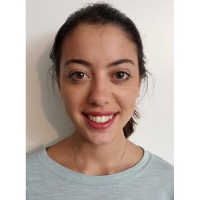PHC 2025

University of Aberdeen, UK
Title : Health Inequalities in the COVID-19 Era: A Foucauldian Perspective on Seine-Saint-Denis, France
Abstract:
Aims:
This study explores how health inequalities during the COVID-19 pandemic have
been socially and politically constructed, using Michel Foucault’s concept of
biopolitics. With a focus on Seine-Saint-Denis, the poorest department of
mainland France, this research examines the way structural factors tied to
class and race are largely contributing to the shaping of different health
outcomes across distinct groups of individuals.
Methods:
A mixed-methods approach was employed, combining secondary quantitative and
qualitative analysis. Government reports, statistical data, and academic
literature were reviewed to assess socioeconomic indicators, health
disparities, and pandemic-related mortality rates. An intersectional framework
was used to analyse structural determinants of health within the population of
Seine-Saint-Denis.
Results:
Seine-Saint-Denis experienced one of the highest COVID-19 excess mortality
rates in France. Key contributing factors include precariousness, a high
concentration of essential low-skilled workers, overcrowded housing, and
pre-existing health inequalities – disproportionately affecting poorer and racialised
populations. Findings suggest these disparities are not incidental but are
instead driven by structural factors embedded in the State’s biopolitical
apparatus, which relies on establishing hierarchies in the value of lives to
ensure the population’s survival as a whole.
Conclusion:
The study highlights how biopolitical mechanisms regulate life and death by
reinforcing structural inequalities during the global pandemics. It further
exposes the way these inequalities are located at the intersection between
class and race. Public health policies could
integrate a more intersectional approach that addresses socioeconomic and
racial disparities to mitigate future health crises.
Biography:
Anaelle Giraux-Arcella is a resident doctor working for the NHS in Scotland, with a background in both medicine and social science. She earned a BSc in Global Health and Social Medicine from the university of King’s College London, followed by an MBChB in Medicine at the University of Aberdeen, Scotland. Her research focuses on the social determinants of health, biopolitics, and bioethics. Whilst practicing medicine, she continues to pursue research in social science, with the aim to ally clinical practice with public health to drive systemic changes in the future.
